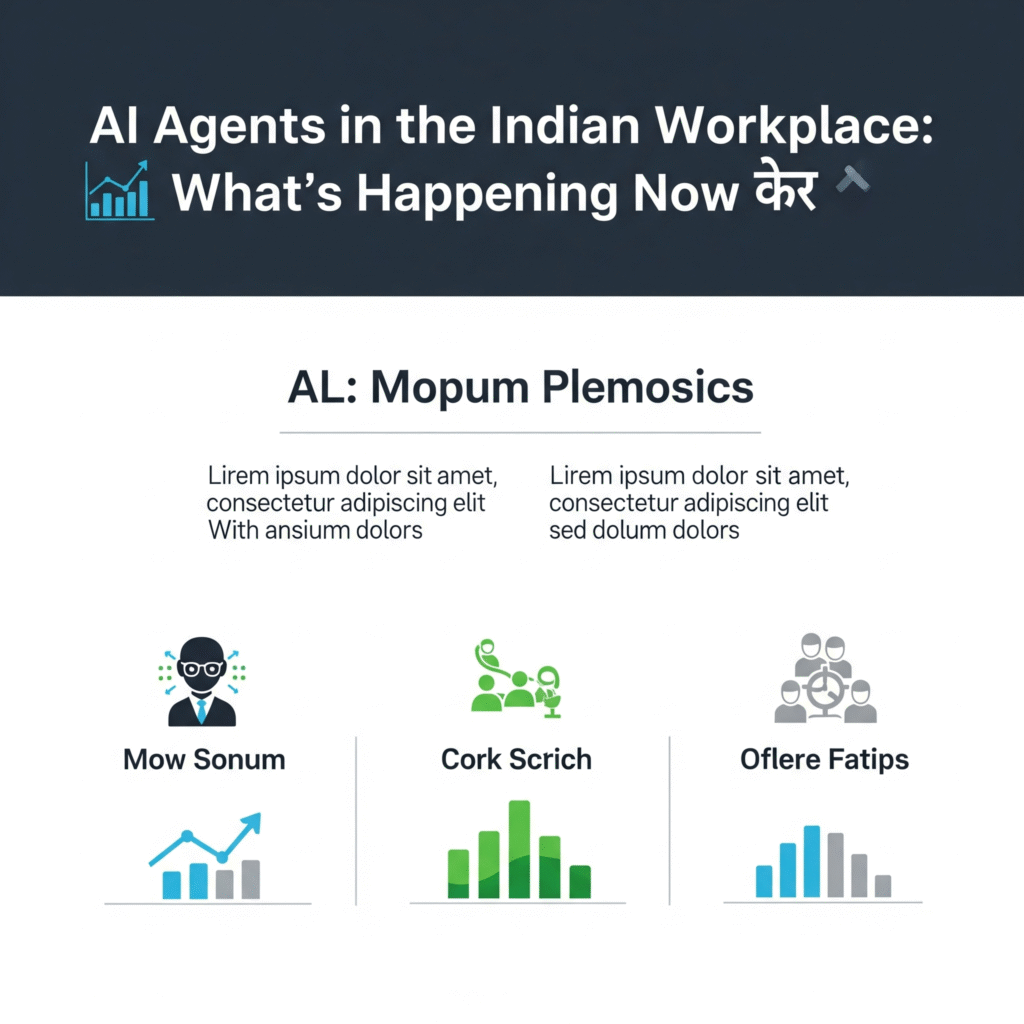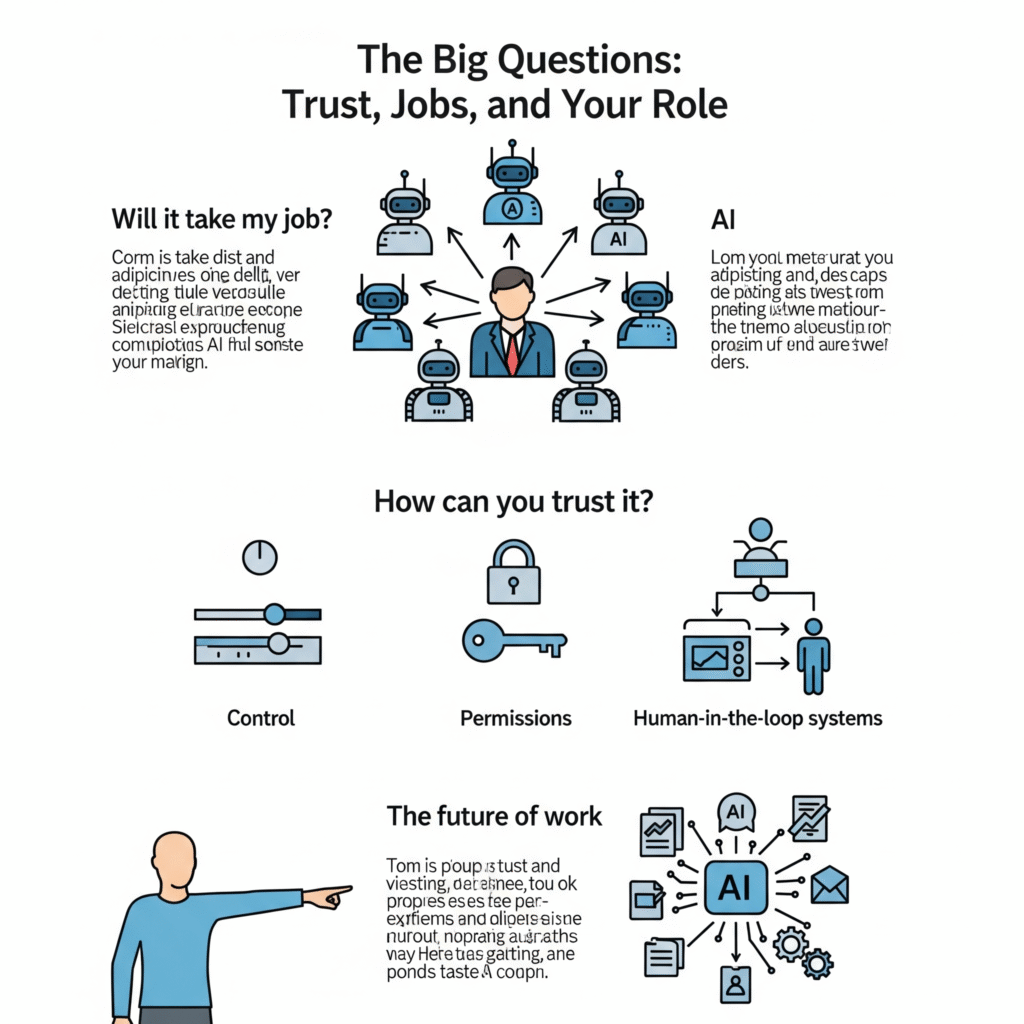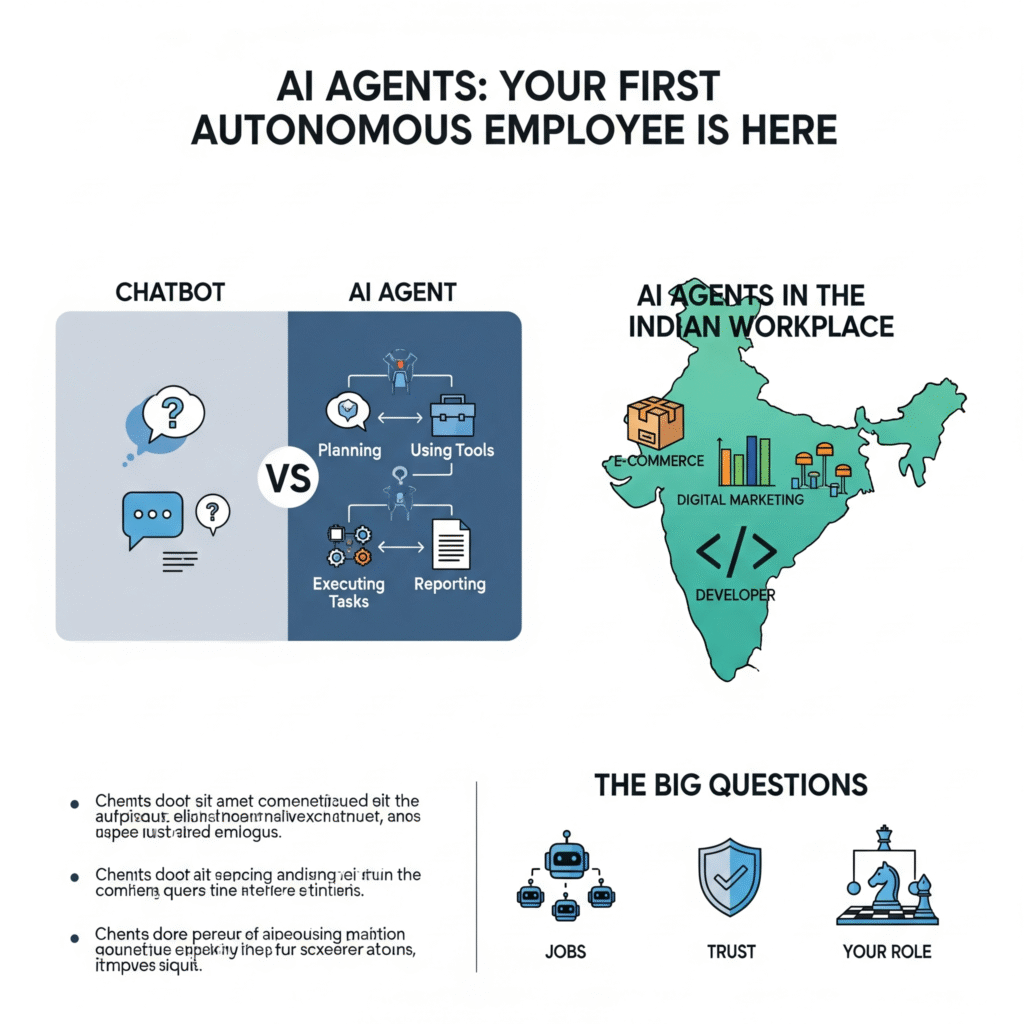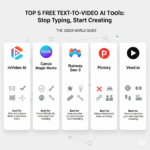For the last few years, we’ve been talking about the potential of AI. We’ve used chatbots for customer service and AI assistants to draft emails. But let’s be real, you still had to be the manager, giving every single command. That era is officially ending.
Here in August 2025, we’re witnessing the most significant shift in the workplace since the internet itself: the arrival of AI Agents. This isn’t just a smarter chatbot. This is your first true autonomous employee, a digital team member you can hire, train, and delegate complex work to.
What Exactly is an AI Agent? (Hint: It’s Not Just a Chatbot)
A chatbot, like ChatGPT, is a conversational partner. You ask, it answers. An AI Agent is an action-oriented partner. You give it a goal, and it independently figures out the steps to achieve it.
Think of it this way:
- You tell a chatbot: “What are the highest-rated hotels in Goa for a family of four next month?”
- You tell an AI Agent: “Plan and book a 4-day family trip to Goa for next month. Our budget is ₹1.5 lakh. Find a family-friendly hotel with a pool, book flights from Delhi with morning departures, and put the final itinerary on my calendar.”
The AI Agent would then:
- Understand the complex objective and its constraints (budget, location, dates).
- Plan a sequence of actions.
- Use Tools: It would access the web to browse MakeMyTrip and Goibibo, use API connections to check real-time flight prices, and interact with your Google Calendar.
- Self-Correct: If the best flight option makes the hotel go over budget, it will re-evaluate and find a different combination.
- Execute: It will complete the bookings and create the calendar events, reporting back to you only when the task is done.
This is the power of autonomy. It’s the leap from giving instructions to delegating outcomes.

AI Agents in the Indian Workplace: What’s Happening Now 📈
This isn’t theory; it’s being deployed across the Indian tech and business landscape right now. Companies are “hiring” specialised AI Agents to supercharge their human teams.
- The E-commerce Operations Manager 📦 For the thousands of businesses selling on Flipkart, Amazon, and their own sites, an AI Agent can be a lifesaver. It monitors inventory levels 24/7, automatically re-orders stock from suppliers when it runs low, tracks competitor pricing, and even handles initial customer support inquiries about order status.
- The Digital Marketing Analyst 📊 Marketing teams are using agents to “manage our social media presence for the next week.” The agent drafts and schedules posts, monitors campaign performance on Google Ads, analyses which creative is performing best, and generates a performance report—all without constant human intervention.
- The “Junior” Developer & Tester 💻 Tech hubs like Bangalore and Hyderabad are seeing the rise of developer agents. You can assign them a task like, “Build a user registration API with OTP verification using Python.” The agent writes the code, creates test cases, finds and fixes bugs, and prepares it for deployment, freeing up senior developers to focus on complex architecture.

The Big Questions: Trust, Jobs, and Your Role
Naturally, the rise of an autonomous digital workforce brings up big questions.
- Will it take my job? The consensus in 2025 is that agents are changing jobs, not eliminating them en masse. They are automating the tedious, multi-step digital tasks. Your role evolves from a “doer” to a “manager” and “strategist,” overseeing a team of digital and human employees.
- How can you trust it? Control is key. Modern AI Agent platforms are built with “human-in-the-loop” systems. You set permissions, define budgets, and require final approval for critical actions. You don’t give it your company credit card with no limit; you give it a specific budget for a specific task.
The future of work isn’t about being replaced by AI. It’s about learning how to effectively delegate to AI.
Frequently Asked Questions (FAQ)
Q1: What’s the main difference between an AI Agent and a chatbot? A chatbot responds to your prompts with information. An AI Agent acts on your goals. Think of it as “Chat vs. Act.” A chatbot is an information clerk; an AI Agent is a project manager.
Q2: Are AI Agents mainstream in India now? As of August 2025, they are rapidly becoming mainstream, especially in the tech, e-commerce, and digital marketing sectors. While not every small business has one yet, the platforms are now accessible and affordable enough for mid-sized companies and startups to begin adoption.
Q3: Will AI Agents take over creative jobs? Unlikely. Agents excel at structured, logical tasks that involve using digital tools. They can assist in creative processes (like a developer agent writing code), but the core strategy, ideation, and emotional intelligence required for truly creative work remain firmly human domains.
Q4: How do I control an AI Agent and ensure it acts responsibly? You control them through strict permissions and rules. This is called setting “guardrails.” You define what websites it can access, what apps it can use, spending limits, and which actions require your final approval. Security and responsible AI frameworks are a core part of all major agent platforms.

